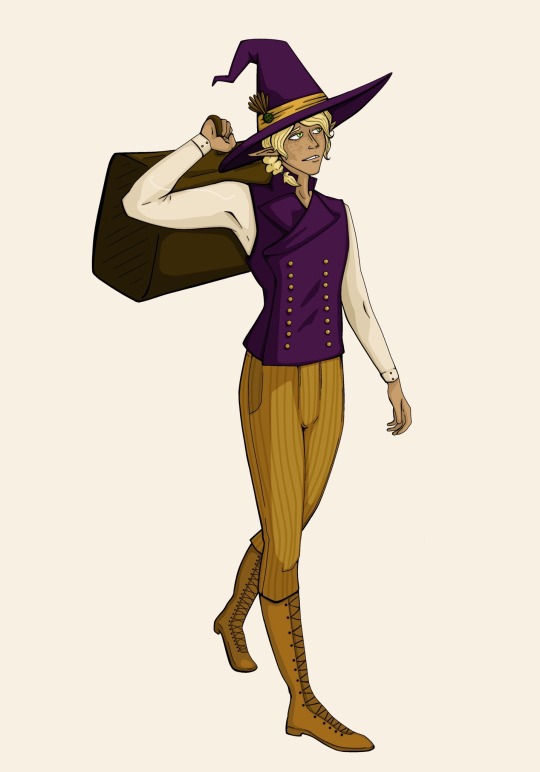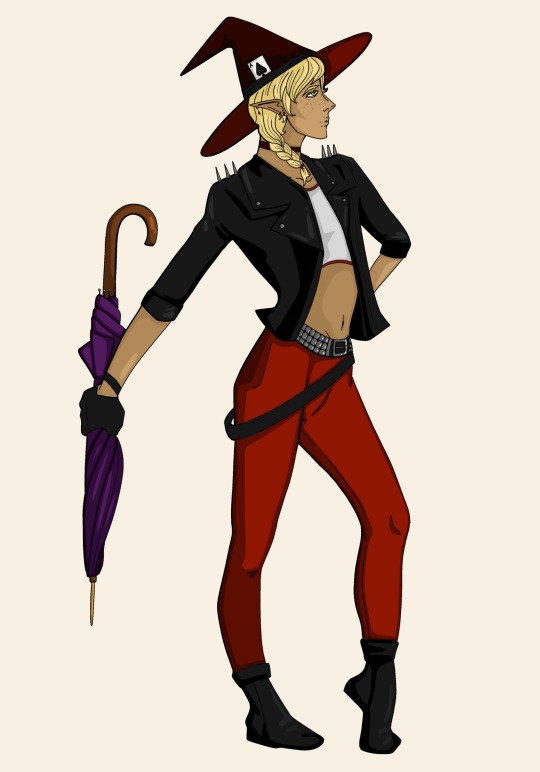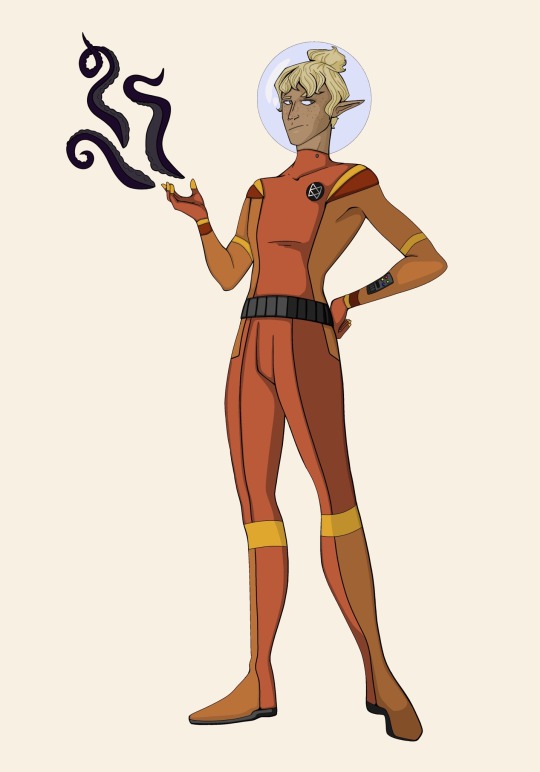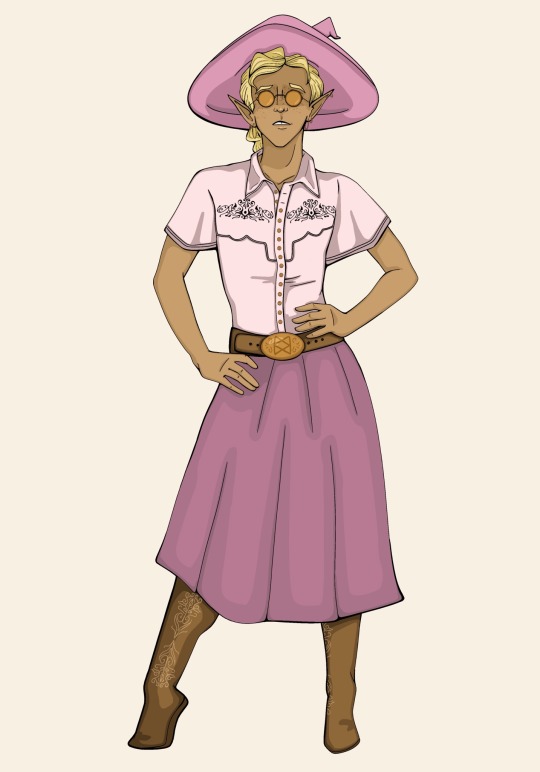#eleventh century
Explore tagged Tumblr posts
Photo




Certain couples offer an image of perfect harmony, at least under the pen of chroniclers who underline the pain felt at the death of a spouse. For example, Pierre Le Baud speaks of the ardent love the count Hoël felt for Hawise. After her death in 1072, he undertook a pilgrimage to Rome. Widows feel the same emotions and maintain the memory of their deceased spouse by their gifts and wish to be buried at his side. In this way, Alan III’s sudden death at the age of 43, perhaps poisoned by the Normans, dismayed his wife, Bertha of Blois, who was “struck in the heart,” according to Arthur de La Borderie. She donates riches to churches, among others to the Benedictine nuns of Saint-Georges de Rennes, in a charter whose beginning resembles a sob: “The end of the word is approaching,” said the duchess, “the warning signs announced by God mount up: nations rise against nations, kingdoms against kingdoms, and the earth is restless with great tremors. I, Bertha, countess of Brittany, and my son, Conan, frightened by these omens, distressed above all by the the death of my very sweet lord, the very illustrious Count Alan, father of my son Conan, here present, the news of whose death came yesterday and pierces our hearts, conforming to the evangelical instruction, ‘make friends with the mammon of iniquity,’ we give to Saint-Georges and to its daughters the parish of Plougasnou.”
-Laurence Moal, Duchesses: Histoire d’un pouvoir au féminin en Bretagne
#historyedit#eleventh century#alan iii#berthe de blois#hawiz de rennes#hoël ii#hawiz 🤝 leaving their spouses absolutely distraught when they die 🤝her dad#my edit
45 notes
·
View notes
Text

Roundel ✦ Source: The MET
#islamic#islamic art#islamic jewelry#islamic jewellery#medieval#medieval period#middle ages#iran#iranian#medieval iran#jewllery#jewlery#jewerly#jewelry#jewellery#medieval jewellery#medieval jewlery#medieval jewelry#public domain#arab#arab art#golden jewelry#gold jewlery#gold jewelry#gold jewellery#11th century#1000s#eleventh century#met museum#museum
21 notes
·
View notes
Text
The role of the historical fiction writer #histfic #nonfiction
The role of the historical fiction writer
Up-to-date interpretations in nonfiction titles Now, I’ve made no secret of the fact that I think historical fiction writers have a duty to portray history as accurately as possible and I think this should be the most up to date interpretations of the past, and not what people were taught in the classroom at school, often quite some time ago, or what’s to be found in popular ‘history’ books…
0 notes
Text







Some costume designs for each arc.
#taz#taz balance#the adventure zone#the adventure zone balance#Taako#taako taaco#taako from tv#taz taako#here there be gerblins#murder on the rockport limited#petals to the metal#crystal kingdom#the eleventh hour#the suffering game#story and song#the stolen century#mcelroys#the mcelroys#my art#digital art#artists on tumblr
158 notes
·
View notes
Text
I’m anti monarchy but I feel like we (mostly usamericans) do not appreciate Maria Theresa of Austria enough. I mean not that I agree with all her policies *cough*the jewish thing*cough* but she was a fucking badass. Finished a great biography about her recently by Goldstone, and wow I was blown away by her. Like this lady had SIXTEEN children, in the 1740’s, that she delivered the same days she was managing the affairs of her state. How about her giving birth while giving orders to her general at the same time??? She was the first and only woman to rule Hapsburg lands, and due to the power dynamics she enforced with her husband she was effectively the only woman to rule the HRE. She took a broke and weakened Austrian Empire and built it back up. She held her own against the military POWERHOUSE Frederick the Great of Prussia. She practiced Enlightened Absolutism— Building and expanding education, commerce and welfare. Stayed crazy up to date with science especially medicines and vaccines. The standard of living in Austria skyrocketed under her. She took her job so seriously and she had almost zero education going into it, her ministers were dogshit and she still managed a prosperous 40 year reign. She commanded respect and loyalty in all her dominions, even those that had disliked all previous Hapsburg rulers. She refused to buckle to pressure to hand off her power to her husband or elder sons. What a woman.

#maria theresa#austria#age of enlightenment#enlightenment#european history#women’s history#history#history nerd#I refuse to let people idolize Catherine the Great without acknowledging her neighbouring girlboss#She was the Barbie of the eighteenth century#(francis her husband was a just ken)#shoutout to my eleventh grade history teacher who first opened my eyes to how awesome she was
9 notes
·
View notes
Text
Okay so The Star Beast was fun and I'm hyped for Wild Blue Yonder and everything but I am shattered over the new episode of Eleventh Doctor Chronicles.
Broken Hearts is some of the best dark!Doctor Expanded Universe exploration I ever consumed, and that includes The Eleventh Doctor Year Two comics. I am sobbing. I am in tears. I am broken as thoroughly as the Doctor broke Valerie Lockwood.
Me when I can't find any Broken Hearts/Curiosity Shop stan posts to reblog or fic to read to get out the angsty energy...

(fic. I'm writing fic. and yes this is an open request for reading recs)
#'you can't be scared of me' 'YOU JUST SAID ITS TAKEN YOU CENTURIES OF PRACTICE NOT TO BE MURDERY! SO SCARED OF YOU? A LITTLE BIT- YEAH!'#that's my Valerie. that's my Doctor. one of the best tardis teams- audio dramas or otherwise#Valarie lockwood#eleventh doctor#eleventh doctor chronicles#where my Eleventh Doctor Chronicles peeps at?? someone help me#(I mean. im at work. but I can't stop thinking abt it since I listened. AND THERES NO BROKEN HEARTS STAN POSTS TO RB)#words by seaweed#btw I understand them not bein as popular/mainstream! they're prohibitively expensive#I bought this one because I couldn't wait. and big finish deserves more $ than bbc but I... have pirated maaaany doctor who audios#I love how horrible eleven is in his EU stuff. idk if I mentioned. it suits him really well.#he's horrible in the show too. but he doesn't get enough shit for it from his companions <3#love Rory and River for their service buuuuut#Alice and Valerie are better than Amy and Clara sorry#(I do love Amy and Clara to DEATH)#that said Alice also forgives him reeeally easily. which is fine! but the fact that she 'trusts him implicitly' in year 3 is irrational.#at least with Valerie the Doctor had excuse of having been recovering from brain damage.#anyway eleventh doctor chronicles broken hearts is great and flawless and the perfect followup to curiosity shop
32 notes
·
View notes
Text
i love how even after falling in love with him mister 2nd century warlord continues to call him “loser liege lord”
33 notes
·
View notes
Text
points at Alfred: my little hoarder son. bookish boy.
one of the people in Elysium literally describing him to another person as 'if you have something that he wants, you don't have that thing anymore. it's already his, you're just keeping it for now'
NERDCHILD
i love you
#vtm#nosferatu#Alfred Toussaint#Blue: HOW MANY TIMES DO I HAVE TO TELL YOU TO CLEAN YOUR ROOM OLD MAN#Alfred: this is how you kids say my emotional support eleventh century parchment of a random family geneology
4 notes
·
View notes
Text
fire emblem is so funny to write fic for because I'm scratching my head over what the medieval equivalent of a bra would be called, or look like, and winding up on an insane deep dive into historical Middle Ages women's clothing and then remembering that it's fire emblem and they quite literally and canonically dress like this

#halfway through a reddit post about eleventh century garments I put my head in my hands because I remember they actually just wear bikinis#fire emblem#mine
0 notes
Text
Fox's Book of Martyrs
https://www.biblestudytools.com/history/foxs-book-of-martyrs/ Edited by William Byron Forbush This is a book that will never die — one of the great English classics. . . . Reprinted here in its most complete form, it brings to life the days when “a noble army, men and boys, the matron and the maid,” “climbed the steep ascent of heaven, ‘mid peril, toil, and pain.” “After the Bible itself, no…
0 notes
Text



According to a donation made by Hoël to the chapter of Sainte-Croix de Quimperlé, we can get an idea of the court of a lord in the 11th century: "We see chamberlains or chambermaids, teachers (grammatici), prefects or provosts, chancellors, bottle cup holders, bread makers or bakers, players of various instruments, bards, jugglers or minstrels, doctors, bailiffs, porters, foresters, and the immediate barons or vassals of the overlord who owed him the war service and the court service, that is to say to assist him in the service of justice." The chronicles add that in 1069, in Quimperlé, Hoël, surrounded by a multitude of lords, received from the Abbot of Sainte Croix the sum of thirty pounds for the maintenance of his knights, who came to him from all over Brittany, like bees to the hive.
-Henri Poisson, Histoire de Bretagne
#historyedit#eleventh century#hoël ii#text in edit from “Alain IV Fergent” in Sturier no. 52#sorry this bit was kind of cute to me :')#hoël's good relationship with his son alan iv gives alan's slightly darker choice in how he began his career some more juicy context imo#my edit
13 notes
·
View notes
Text


Kilmainham Brooch ✦ Source: The MET
#medieval#medieval period#medieval europe#medieval jewellery#medieval jewelry#medieval jewlery#medieval brooch#medieval brooches#brooch#brooches#jewllery#jewlery#jewerly#jewelry#jewellery#public domain#eleventh century#11th century#medieval ireland#irish jewellery#irish#ireland#1000s
3 notes
·
View notes
Text
Saxon Royal Charters from 1006-1013 #TheEarlsofMercia #histfic #nonfiction
Royal charters from 1006-1013 There are only 8 surviving charters for this period in history. They are from 1007, 1009, 1012 and 1013. It’s said that the missing years are due to interruptions caused by invasions of ‘Viking raiders’. This certainly applies to 1010-11 and 1006 when the Anglo-Saxon Chronicle recounts tales of Viking incursions. As is so often the case, this lack is frustrating…
0 notes
Text
“here there be gerblins” is like what if you couldn’t save everyone. “petals to the metal” is like what if the love was there and it couldn’t save everyone but the love was still there. “crystal kingdom” is like what if the love was there and it couldn’t save everyone and it actually made things worse but the love was there. “the eleventh hour” is like what if love started all of this but you couldn’t save everyone (you couldn’t save everyone (you couldn’t save everyone (you couldn’t save everyone (you couldn’t save everyone (you could save everyone))))). “stolen century” is like what if you could try again (what if there was love) (what if you could try again).
5K notes
·
View notes
Text
harrowhark is five foot nothing and built like a damp worm on a string and feels so strongly about keeping her face and body covered at all times that if she doesn't have access to face paint she will cover her skin with her own dried blood and she has the personality of a deeply traumatized eleventh century orphan getting shipped off to a nunnery after her parents' passing and every eligible bachelorette in the nine houses desires her carnally to such an extent that they will rewrite the course of their lives over it
4K notes
·
View notes
Text
Love at first sight - Sirius Black

summary: lily's sister who goes to beauxbatons throws the party of the summer which sparks likely friendships, and an even likelier romance. wc: 2.3k


Lily came into the Great Hall the same way she always did: a determined look on her face, chin lifted up confidently, carrying overflowing papers in her arms, but something was different. Those paper she carried? They weren’t filled with head girl applications or polished assignments, no, they were party invitations.
She sat at her usual seat, and as per usual, the marauders ruffled through her papers. “Party invitations?” Whispered Sirius excitedly, as though it was something secret. Lily puffed her chest out “Y/n’s throwing a party, and encouraged me to extend the invitations to some Hogwarts students.” James cleared his throat to stop himself from choking on his tea. “I’m sorry? Your parents are letting you throw a party? The same two people who didn’t let you come over to Marlene’s tea party?” Lily grinned widely. “Well, y/n only comes home during the summers. I’m there every winter and spring break , so she kind of has a way with our parents. All she had to say was ‘this is our last summer before we graduate’ and she had them.”
“Wait, wait, wait,” Marlene cut in, her face lighting up, “If this is y/n’s party, does this mean it’s going to be filled with sexy french kids?” Lily nodded happily, sharing a look with the other marauders. It was going to be the party of the year.
You and Lily were the epitome of opposites. You’d engrossed yourself in getting to know all the kids in the neighborhood and quickly because friends with your french neighbour, while Lily only befriended one — Severus. By force of being around the young boy, you’d learned his language, his language which quickly became your own. Whilst you and Lily had your own friends, no one was closer to you both than each other. You were twins, not only blood brothers but best friends. Due to your linguistic talent, you’d not only received a letter from Hogwarts on your eleventh birthday, but from Beauxbatons too. Petunia, ever so jealous of your relationship and your magic, had duped your parents into sending you away.
Petunia had ran off crying, locked in her room alone until she formed the plan of the century to break your relationship with your twin apart. “Well, they’re always together. Isn’t it better for them to learn how to live apart from each other?” And your parents had fallen for her trick. Now, you only saw each other during the summers, and your relationship was stronger than ever. But things would soon change.
The only thing Lily heard of for the rest of the day was this party. Who was she inviting? How many people would be there? “Sirius, it’s not my party. I don’t know the details. All I’ve been told is that I have these invitations to give out to people.” Sirius stared at the front of the boldly decorated invitation on the top of the pile which read in a glittery font ‘No invite, no entry!’ He ran a rough estimate in his mind and decided there had to be at least seventy invitations in the stack of papers. “Can I help give them out?”
Lily and Sirius had proudly made up a list of who to invite, or not to invite, the rest of the marauders eventually gathering around to put in their own two cents. When the invitations had been given out, Lily returned to her dorm whilst the marauders all sat in front of the black lake, soaking up the limited sun rays whilst staring at their own invitations. “This is some high end decor.” Commented Remus, turning his invitation in his hands. The fonts had been carefully chosen, and a textured disco ball sat in the centre of the page. “Yeah, according to Lily, y/n loooves to party.” Marlene added, laying on her back. “I’m excited to meet her,” started James “She sounds fun, and we barely ever hear about her from Lily.”
Sirius hummed, gears turning in his brain. “Lily said they’re nothing alike.” He recalls. It was true. You and Lily weren’t only opposites in terms of personality, but looks too. Despite being twins, you had taken all of your father’s genes while Lily took after your mother. No one ever believed you when you said you were twins, let alone siblings.
The party was nearly an entire month later. The marauders found themselves outside an ordinary muggle house, glancing at each other nervously. Had they arrived too early? Marlene glanced down at her invitation, ensuring that they were there right on time. A knock on the door and they were waiting. The door slammed open and they were met with you, a bright smile on your face and a tray in the other with an array of pink and blue jell-o shots. You weren’t the only thing that welcomed them, but the loud roar of noise from inside the house blasted them too. Remus cocked an eyebrow, thinking ‘That’s one mean silencing charm.’ “Grab a drink you guys!” You called, holding the door open with your foot as you moved to the side for them to come in. You introduced yourself over the noise, clueless to the mesmerised eyes following you.
Sirius let himself be dragged into the house by Remus, though his eyes followed you as you escaped into the backyard. Lily had been right, you weren’t nothing alike. You wore fishnets under your small denim shorts, your top exposing more than just midriff. He gulped, trying not to be caught staring at your breasts when you turned around, instead moving his gaze to the endless jewellery you wore.
Sirius heard himself gasp — apparently the french like to be early. The party in the backyard was lit, he finally noticed, with groups of people already playing beer pong, dancing to the music, and even exchanging light conversation. Lily ran to join them, trying to properly introduce you to her friends, but you were running back to the door as the bell rung once more. Apparently everyone arrived at once, because a crowd of people suddenly flooded the living room. A mix of elegant french and fast english chatter filled the air, and Sirius saw Marlene’s jaw drop, already picking the girl she was going to spend the rest of the night flirting with. Just as Lily was about to catch you, you jumped onto the coffee table, pointing your wand to your neck with an amplification charm.
“Okay, listen up everyone!” You called out, and from within the crowd, Sirius caught your eye, his muscular arms thrown over two of his friends' shoulders. You hadn’t properly noticed him when he walked in, but now? You shook the thought out of your head. “We have about 200 wizards in this house. A house that you can tell is in a muggle neighbourhood! Now, my silencing charm may be great, but it doesn’t hide magical activity! So if we can keep the magic down to a minimum and get the party up to a maximum that would be great! Where’s my music!?” And suddenly the music roared to life. Sirius shoved to the front of the crowd, offering you a hand to help you down from the coffee table. You felt your stomach jump at his offer, the light reflecting off his silver jewellery. Instead of taking Sirius’s hand, you wrapped your arms around his neck, swinging your legs off the table. Sirius snaked his arms around your waist without missing a beat, spinning you around so you let out a joyous laugh. “And who might you be?” You asked, running your hands down his chest before letting them hang by your sides.
Sirius curtseyed, miming saluting you with a hat whilst very poshly saying “Sirius Black, at your service.” You giggled, putting both your hands on his bicep. “Hey, you met Sirius!” Lily cut in, bumping you with her hip. You met her eyes, and they glinted with mischief. She most definitely knew how attracted you were to Sirius in that moment. “Come meet the others!” She didn’t give you time to respond, instead tugging you away from the curly haired boy. You waved at him, yelling “I’ll see you later!” and then “Shut up” to Lily when you turned around. You didn’t have to look at her to know she was smiling like the cheshire cat.
James was the first to bring you into a hug, his hands respectfully patting your back. You turned to look at Lily, nodding in approval. Your introductions with Remus and Marlene were quick, witty comments given by each of them before Marlene so boldly asked “Hey, is that cute brunette over there into girls?” You laughed, wrapping an arm around her waist. “Sweetheart, you’re going to have to be more specific, but for you? Anyone would be into girls.” Simple to say, Marlene turned bright red, and not because of the warmth the alcohol had given her.
When Sirius returned to the group, you were already gone, dancing with your friends. He threw his arms around James’s shoulders, resting his head on his best friends’s shoulder. “James, we’re going to be brothers in law!” The boy barked out a laugh, pushing Sirius away to look at him properly. “I’m in love with her James.” Remus laughed, slapping a hand on Sirius’s back. “Well what are you going to do about it buddy?” He asked, sharing an amused glance with James. “I’m going to convince her to come to Hogwarts. Wait! First, I’m going to make her fall in love with me!” Sirius frowned at his two friends’ loud laughs, muttering something like “I’ll show you.” But he didn’t have the chance to come find you in the crowd, because two pairs of hands were placed upon his shoulders, and you appeared, saying “Come dance with me.”
Sirius almost passed out at your offer, blindly following you onto the dance floor and missing the surprised look Remus and James shot each other. Apparently, you wouldn't need much convincing to fall for Sirius. Sirius took your hand, spinning you around, and you looking him up, looking around as though it would hide the bite of your lip. Sirius’s jeans were just tight enough around the crotch, and low waisted enough that every time he raised his arms too high, a sliver of his abdomen would show as his top would ride up. You spun around in Sirius’s arms, pressing your back against his chest. His hands trailed down to your hips, tugging them closer to his own. You giggled, moving your body alongside the music. Sirius groaned, whispering the lyrics in your ear, his hot breath hitting your sweaty skin.
The next time Sirius groaned, it wasn’t out of enjoyment, it was because someone had called out your name. “Viens avec nous? Just une cigarette!” (Come with us? Just one cigarette!) You had laughed at your friend’s words, shaking your head. “Non, il est trop beau, je ne veux pas le quitter!” (No, he’s so gorgeous, I don’t want to leave him!) Sirius hummed as you turned around in his arms, putting both your hands on his chest. “Come outside with me! Somewhere we can talk!” You grinned, sliding both your hands down in his, and letting him drag you outside.
You let Sirius guide you to a less crowded side of your garden, where you could people watch without being disturbed. You pushed Sirius against the wall of your backyard, watching as his eyebrows flew upwards in surprise. “So, Mr. Black, what would you like to discuss?” Sirius felt his heart surge, its pace quickening by the second, and he was sure you could feel it under your fingertips too. “Go out with me.” He heard himself blurt, and his eyes went wide at his own question. You laughed, looking around. “Aren’t we out right now?” The silence he left you with made you giggle, leaning your head forward on his chest. “I’m just joking.” Sirius shoulders slumped down in relief, hands loosely gripping your hips.
“I don’t want this to just be a little party flirt. I want to really get to know you. You… you seem cool.” You pressed yourself onto your tip toes, leaning forward to softly kiss Sirius. He sighed as you pulled away, chasing the kiss softly, but you refused to reconnect your lips. “I’d really like that.” Sirius smiled widely, pulling you flat against his body. “And hey, who knows, maybe you can show me around Hogwarts?” Sirius nodded, replying with “Yeah of- wait, what?” You straightened your back, cocking your head to the side. “Yeah, I’m moving to Hogwarts next year. Mum and dad finally had enough of me being so far away.” You interrupted yourself with your own laugh, pushing yourself off of him and looking around. “That’s what this is! My goodbye slash welcome party. Didn’t Lily tell you?” Sirius shook his head, stepping closer to you. “Well since I’ll be seeing more of you, can I properly kiss you now?”
Nodding at Sirius, you let him tug you closer to him, bringing you into a passionate kiss. You gasped at the force of his kiss, letting Sirius slide his tongue into your mouth. Moaning softly, you brought your hands up to cup Sirius’s face, pushing your body even deeper into his. “Oh my!” You pulled away from Sirius harshly, stumbling away from him. “I mean, I knew you guys had something going on, but I didn’t know it was going on.” You felt your face flush at Lily’s words, and heard Sirius cry out from behind you “Why didn’t you tell us she’s joining next year!?” James, from next to Lily, turned to face her, surprise overtaking his features. “I wanted to see how you guys got along before telling anyone!”
Remus approached the four of you, tipsily mumbling “Marlene has a roster of like three girls right now, and I just overheard some guy saying he wants to jump in the lake. I didn’t know there was a lake.” Remus stood silently, finally taking in the scene in front of him.
“I’m sorry, did I miss something?”
taglist:
@ravisinghs-wife, @amatoanima, @starry-remus, @pain-in-the-ashe
#rainydayathogwarts#harry potter#hogwarts#marauders era#gryffindor#the marauders#sirius black fanfiction#sirius black smut#sirius black#sirius orion black#sirius being sirius#sirius black x reader#sirius black x you#marauders#sirius black x y/n#sirius black fluff#evans!reader
627 notes
·
View notes